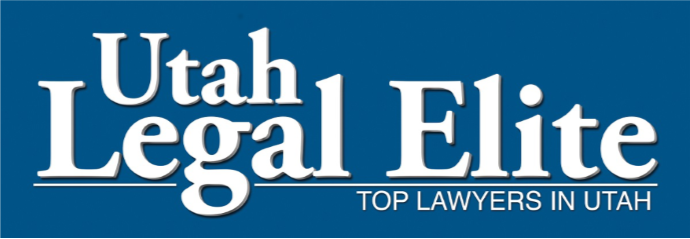Trabajo y empleo
TRABAJO Y EMPLEO
ÁREA DE PRÁCTICA / ABOGADOS DE EMPLEO DE UTAH
Las leyes laborales y laborales afectan todas las áreas de una empresa. Nuestros abogados laborales representan a grandes y pequeñas empresas en los tribunales, durante las investigaciones y durante todo el proceso de mediación. Además, preparamos todos los documentos y contratos necesarios para el funcionamiento de su organización.
LEY DE EMPLEO DE UTAH
Representamos a nuestros clientes en todos los tribunales de apelación y agencias administrativas federales, estatales cuando surgen disputas relacionadas con reclamos laborales o laborales. Nuestros abogados laborales ofrecen servicios de asesoría
y litigios para satisfacer todas las necesidades de nuestros clientes.
Documentos y contratos
- Acuerdos laborales
- Cláusula de no competir
- Contratos de venta
Investigaciones internas y externas
- Derechos civiles
- Acoso
- Represalias
- Salario y hora
Mediación y litigios
- Resolución de disputas internas
- Negociaciones comerciales externas
Auditorías, cumplimiento y formación
- Formación laboral interna
- Evaluación de la documentación
- Revisión de cumplimiento de la ley laboral
ACTUALIZACIONES RECIENTES DE LA LEY DE EMPLEO
ABOGADOS DE EMPLEO EN RICHARDS BRANDT EN SALT LAKE CITY
Documentos y contratos
Hay un momento y un lugar para los acuerdos escritos, se pide a los empleadores que pongan por escrito las ideas y los compromisos casi a diario. Como empleador, debe conocer los riesgos y requisitos legales de los contratos de trabajo, los acuerdos de indemnización, los contratos de venta y los acuerdos de comisiones.
Los documentos de empleo son esenciales en todas las etapas del proceso de empleo, comenzando con la publicación de un puesto vacante, durante el proceso de entrevista, a lo largo de la relación laboral y en el momento de la terminación. Los formularios de empleo, como las solicitudes, las autorizaciones de verificación de antecedentes, los acuerdos de no divulgación, así como todos los términos y condiciones de empleo escritos y verbales, pueden requerir documentación específica. Estos documentos tienen cabida en el expediente laboral. Las leyes que rodean los registros de empleo y el acceso a estos registros varían según el estado.
La contratación de consultores y contratistas independientes establece una situación de empleo única, todos los términos acordados deben hacerse por escrito. En muchos casos, los acuerdos de confidencialidad y no solicitación firmados protegerán los secretos comerciales de su empresa.
Un abogado debe revisar cualquier documento que firmen tanto usted como su empleado / contratista, especialmente aquellos que dictan los términos y condiciones de su relación profesional y / o compensación.
Investigaciones internas y externas
Las investigaciones de empleo, independientemente del problema, deben gestionarse con cuidado. Con frecuencia, los empleadores deben realizar investigaciones de conductas indebidas en el lugar de trabajo. La investigación independiente, rápida y exhaustiva de un reclamo de acoso o discriminación es crucial. Una investigación incompleta, inexacta o sesgada puede agravar el problema y aumentar la responsabilidad potencial del empleador.
Nuestros abogados laborales con experiencia lo guiarán a través del proceso de investigación o pueden realizar la investigación según sus indicaciones.
El robo interno, el abuso de drogas, la violencia en el lugar de trabajo, el acoso sexual, la discriminación, las reclamaciones fraudulentas de compensación para trabajadores y otros problemas afectan las finanzas de una empresa, así como la moral, la productividad y la reputación de su empresa. Trabajaremos con usted durante toda la investigación o en cualquier momento de una investigación para lograr un resultado favorable.
Hemos representado con éxito a nuestros clientes en una amplia gama de casos laborales que incluyen:
- No competir
- Privacidad en el lugar de trabajo
- Reclamaciones estatutarias y de derecho consuetudinario
- Secretos comerciales
- Desempleo
- Reclamaciones de salarios y horas
- Acoso sexual y de otro tipo en el lugar de trabajo
- Derechos civiles y discriminación (raza, religión, discapacidad, género, etc.)
- Uso de drogas / alcohol en el lugar de trabajo
- Comportamiento amenazante o violento
- Robo de propiedad
- Mala conducta del empleado / supervisor
- Represalias
- Cumplimiento de la ADA
- Acoso sexual
- Lugar de trabajo seguro
- Procedimientos de contratación
- Acción correctiva y rescisión
- Impugnar o usar evaluaciones de desempeño contra un empleador
Asistencia con terminaciones difíciles
Una de las responsabilidades más difíciles que tiene un empleador es despedir a un empleado. Aunque las leyes están escritas para proteger a la mayoría de los empleados en este país, los empleadores tienen una posición sólida bajo la ley para contratar y despedir a quien quieran, por cualquier motivo, no protegido por la ley, o sin ningún motivo. Distinguir entre estas leyes es complicado. Si tiene alguna pregunta sobre las circunstancias de una rescisión, llámenos directamente, en muchos casos, podemos responder su pregunta en solo unos minutos.
Mediación y litigios
Siempre es mejor resolver un conflicto rápidamente y con pocas interrupciones en su negocio. A menudo, la mediación del tiempo no solo dará como resultado un compromiso mutuamente satisfactorio, sino que también permitirá que todas las partes sean escuchadas. Los empleados que desean ser escuchados aprecian trabajar con un mediador para resolver un problema con su empleador. Hemos ayudado con éxito a las empresas a mediar problemas con los empleados para que todas las partes puedan volver al negocio en cuestión, a menudo en un entorno de trabajo más productivo.
La mediación y el arbitraje también son efectivos cuando su empresa necesita representación para responder a una queja presentada contra su empresa o uno de sus supervisores. Hemos trabajado con la EEOC, la Comisión Laboral, el Departamento de Derechos Humanos, DOL, OSHA y USCIS para resolver problemas relacionados con el empleo. Hemos negociado acuerdos y multas reducidas para nuestros clientes.
Si se toma la decisión de acudir a los tribunales, la mejor oportunidad que tiene su empresa de ganar el caso es contar con uno de los abogados litigantes más experimentados de Utah. Nuestros abogados han estado trabajando en nombre de los empleadores en el oeste de intermountain durante décadas.
Auditorías, cumplimiento y formación
Auditar los registros de empleo puede ser tan fácil como hacer una verificación rápida para asegurarse de que tiene los documentos necesarios en su lugar, también realizamos exámenes detallados de esos documentos para asegurar que su empresa cumpla con las leyes aplicables. Los organismos encargados de hacer cumplir la ley pueden auditar casi cualquier asunto o tema. Nuestro examen sistemático e independiente de datos, documentos, registros y prácticas laborales es un paso fundamental para crear una posición sólida y defendible para su empresa. Igualmente importante, una auditoría asegura a las partes interesadas que ha dado todos los pasos para evaluar y mejorar la eficacia de su plan de gestión de riesgos.
El cumplimiento no solo significa cumplir con una regla, política, regulación o ley, también es una herramienta para atraer y retener empleados. Los empleadores que ofrecen los mejores lugares para trabajar, independientemente de la industria, generalmente tienen los empleados más productivos. Los empleados quieren un lugar de trabajo seguro, quieren poder contar con sus supervisores y quieren que las reglas y directrices de la empresa se administren de forma coherente.
El cumplimiento normativo es un objetivo por el que se esfuerza toda empresa; El cumplimiento de las leyes y reglamentos pertinentes crea un entorno en el que los supervisores y los empleados pueden tener éxito. Esto es difícil con el creciente número de regulaciones que se espera que sigan las empresas, especialmente cuando esas leyes entran en conflicto entre sí. Nuestros abogados abordan el cumplimiento teniendo en cuenta su negocio; Las regulaciones se pueden cumplir sin la duplicación innecesaria de esfuerzos y actividades de sus recursos limitados.
La capacitación continua y el refuerzo de las pautas específicas son necesarios para el éxito de sus empleados y constituyen una parte importante del cumplimiento normativo conforme a la ley. La capacitación es la adquisición de información, habilidades y competencias como resultado de recibir información relacionada con conocimientos específicos útiles. Nuestros abogados trabajan con usted para identificar lo que sus supervisores y empleados necesitan saber para tener éxito y las prácticas que deben adoptar para proteger a la organización en su conjunto.
PREGUNTAS FRECUENTES (FAQS)
BUSINESS TRANSACTIONS & CORPORATE GOVERNANCE / FEATURED FAQS
P: ¿Es una LLC o una corporación adecuada para mi negocio?
Answered by:
A: To decide which entity is right for you, we look at: liability, taxation, and maintenance. Both corporations and LLC’s have limited personal liability—this means that owners are usually not responsible for business debts. However, corporations and LLC’s are taxed very differently—corporations are classified as a separate taxable entity, whereas LLC’s are typically taxed as a pass-through entity (unless you choose otherwise). And corporations and LLC’s have different levels of maintenance—LLC’s have fewer reporting requirements and can operate solely with members acting as the managers. Conversely, corporations are required to hold certain annual meetings, keep certain records, and appoint boards and officers to manage the company for the stockholders. Every situation is unique so we recommend that you consult with an attorney in making your decision. Contact our firm, Richards Brandt, if we can help you decide which entity is right for you.
P: ¿Es una LLC o una corporación adecuada para mi negocio?
Answered by:
A: To decide which entity is right for you, we look at: liability, taxation, and maintenance. Both corporations and LLC’s have limited personal liability—this means that owners are usually not responsible for business debts. However, corporations and LLC’s are taxed very differently—corporations are classified as a separate taxable entity, whereas LLC’s are typically taxed as a pass-through entity (unless you choose otherwise). And corporations and LLC’s have different levels of maintenance—LLC’s have fewer reporting requirements and can operate solely with members acting as the managers. Conversely, corporations are required to hold certain annual meetings, keep certain records, and appoint boards and officers to manage the company for the stockholders. Every situation is unique so we recommend that you consult with an attorney in making your decision. Contact our firm, Richards Brandt, if we can help you decide which entity is right for you.
P: ¿Es una LLC o una corporación adecuada para mi negocio?
Answered by:
A: To decide which entity is right for you, we look at: liability, taxation, and maintenance. Both corporations and LLC’s have limited personal liability—this means that owners are usually not responsible for business debts. However, corporations and LLC’s are taxed very differently—corporations are classified as a separate taxable entity, whereas LLC’s are typically taxed as a pass-through entity (unless you choose otherwise). And corporations and LLC’s have different levels of maintenance—LLC’s have fewer reporting requirements and can operate solely with members acting as the managers. Conversely, corporations are required to hold certain annual meetings, keep certain records, and appoint boards and officers to manage the company for the stockholders. Every situation is unique so we recommend that you consult with an attorney in making your decision. Contact our firm, Richards Brandt, if we can help you decide which entity is right for you.
BUSINESS TRANSACTIONS & CORPORATE GOVERNANCE – CASE STUDIES
Utah Manufacturing Company Needed Employment Contracts For Key Staffers
Utah Construction Company Needed Planning For Business Growth & Protection
Utah Family Enterprise Needed Guidance and Representation to Sell Business
REVIEWS
Utah One of the Leading States for Advanced Industries Employment
February 2015
A recently released report from the Brookings Institution entitled “America’s Advanced Industries: What They Are, Where They Are, and Why They Matter” highlights the strength and diversity of Utah’s economy. The report defines an industry as an “advanced industry” if it meets two criteria: 1) the industry spends heavily in research and development (R&D spending per worker in the 80th percentile or higher or more than $450 per worker); and 2) the industry employs workers with a high degree of STEM (science, technology, engineering, and math) knowledge above the national average of 21% of all workers. Using these criteria, the authors of the report identified 50 industries that invest heavily in research and development and employ highly skilled workers. These 50 industries include manufacturers, energy providers and service providers in a variety of industries, such as aerospace products and parts, motor vehicle-related manufacturing, computers and peripheral equipment, chemical products, energy industries, computer systems design, data processing and hosting, and software publishers. Many of these industries are developing “disruptive technologies” that are redefining both the workplace and our daily lives.
Overall, the State of Utah was one of only seven states where more than 10% of the workers are employed in advanced industries. And the Salt Lake City, Provo-Orem, and Ogden-Clearfield metropolitan areas were all ranked in the top 15 among large metropolitan areas with the highest percentage of advanced industries employment. While Utah’s three largest metropolitan areas are among the leaders nationwide in advanced industries employment, the composition of that employment differs from region to region. Ogden-Clearfield’s advanced industries employment was geared more towards manufacturing industries, with Ogden ranking as one of the five areas most specialized in advanced manufacturing industries. Conversely, Provo-Orem, with a large number of technology companies contributing to its reputation as the Silicon Slopes, is one of the five areas with the highest concentration of advanced services industries. The report also identified Provo-Orem as one the fastest growing areas in the advanced industries area. Finally, Salt Lake City had a more diversified industry base, reflecting a mix of both manufacturing and service industries.
The importance of these industries to Utah is evident in its impact on the Utah economy. While responsible for more than 10% of all jobs in the State of Utah, advanced industries account for more than 18% of the total output for the state, exceeding $24 billion in 2013. The advanced industries in Utah also indirectly support another 100,000 jobs in Utah, or more than 8% of Utah’s total employment.
The Executive Summary and the Full Report, along with interactive data and support tables, are available at http://www.brookings.edu/research/reports2/2015/02/03-advanced-industries#/M10420. Summaries of employment, output, and growth for the State of Utah and the Salt Lake City, Provo-Orem, and Ogden-Clearfield metropolitan areas are attached.
PDF – Provo UT – Advanced Industries Analysis
PDF – Utah – Statewide Advanced Industries Analysis
PDF – SLC UT – Advanced Industries Analysis
PDF – Ogden, UT – Advanced Industries Analysis
Steven Bergman is a Shareholder and Attorney with the law firm of RBMN, specializing in business law, real estate law, and appeals.
2014 Executive Orders on Immigration Video Presentation
President Obama decided to pursue Immigration Reform through Executive Orders. May hear something after November 5, 2014.
- Work Permits for Parents of DACA
- Work Permits for Agriculture
- Increase Employment Related Visas
- Extension for Foreign Nationals who Graduate from U.S.
- Residency for Spouses of U.S. Citizens who Entered Illegally
Form I-9 Compliance Video Presentation
September 23, 2014
Complying with the rules and regulations under the Form I-9 enforced by USCIS.
In September 2012, 520 criminal work place enforcements and arrests took place. In September 2013, more fines were issued, in one case the government issued a $34m to settle systematic visa fraud and abuse. ICE is enforcing felony criminal charges. The Grand America was fined $2m for immigration violations.
Fines and penalties are expected to increase along with re-audits by ICE.
Correct your measures
Audit your forms
Train your employees
Execute I-9 compliance plan
Employee Record Retention and Destruction
January 2013
The beginning of a calendar year is a good time for employers to review their document retention status. All employers should establish and maintain a clear record retention policy identifying the location of records, a reasonable schedule of retention and destruction, and a records administrator.
Documents related to employee recruitment and selection, such as job advertisements, resumes, job inquiries and records of refusal to hire should generally be retained for one year. 29 U.S.C. § 626; 29 C.F.R. § 1627.3 (Age Discrimination in Employment Act). Once an employee is hired, EEOC regulations require employers to keep all personnel or employment records for one year. If an employee is involuntarily terminated, his/her personnel records must be retained for one year from the date of termination. 42 U.S.C. §2000e-8(c); 29 C.F.R. §1602.14 (Title VII of the Civil Rights Act of 1964). Separate personnel files should be maintained for each employee.
Employers must maintain pay and promotion records for a period of three years, and must keep all records that would explain the basis for employee wages for a period of two years. (EEOC Recordkeeping Requirements). Additionally, employers must keep a copy of all employee benefit plans and merit systems while in effect and for at least one year after termination of the plan.
Documents related to employee leaves of absence under the Family Medical Leave Act (FMLA) should be retained for three years. 29 U.S.C. § 2626; 29 C.F.R. § 825.500. Remember to keep medical records confidential and separate from the employee’s personnel file. I-9 Employment Eligibility Verification forms should be retained for three years from the date the record was made or a personnel action was taken, whichever is later. 8 U.S.C. §1324a(b)(3) (Immigration and Nationality Act). I-9 forms should also be stored securely and separately from the employee’s personnel file.
This touches on a few, but not all, federal statutes governing document retention. These are general guidelines only, and exceptions may apply. Once an employer is aware of a potential lawsuit or charge of discrimination, employers cannot destroy records related to the subject matter of the complaint for any reason until complete resolution of the matter has been reached, including any appeals.
Contact Mark McCarty or Kallie Smith if you need more information on employee record retention and destruction policies and practices.
The «Gang of 8» Senators Release the Border Security, Economic Opportunity and Immigration Modernization Act of 2013

April 2013
After months of debate, negotiations and speculation, the «Gang of 8,» made up of eight Republican and Democratic senators charged with the task of composing an immigration reform bill, has released its much-anticipated proposal. On Wednesday, April 17, the 844-page bill (titled the «Border Security, Economic Opportunity and Immigration Modernization Act of 2013«) was filed in the Senate. The bill represents some significant compromises between the two major parties and reflects the changed political landscape surrounding immigration reform in the wake of last November’s election.
Here is a brief overview of some of the key provisions of the bill:
Border Security
The Department of Homeland Security must create, fund and implement a border security and fence plan. Within 10 years of the bill’s enactment, all employers in the United States must be using E-Verify. A visa exist system must be implemented at all international airports and seaports.
Jobs
The bill seeks to protect American workers from losing much-needed jobs to immigrants. The bill would not allow any work visas to be issued if the unemployment rate in a certain area is above 8.5 percent. Foreign students will get a «green card stapled to their diplomas.» The number of available H1-B visas will be nearly doubled. However, certain categories of family visas such as siblings and adult, married children of citizens will be eliminated.
The Guest Worker Program will be «modernized.» A new agricultural guest worker visa program will be established, which will allow some current undocumented agricultural workers to obtain legal status through an Agricultural Card Program.
Pathway to Citizenship
The bill proposes a long and arduous «pathway to citizenship» for the estimated 11 million people living in the United States illegally. No undocumented immigrant is eligible to apply for this temporary status until the border security measures are in place. Once the first security triggers are achieved, undocumented immigrants will be able to come forward, pass background checks, be fingerprinted, pay $2,000 in fines, pay taxes, prove gainful employment, and prove they have been in the U.S. since 2011, among other criteria. Those who have a serious criminal history or do not meet the above criteria will be deported.
Undocumented immigrants will not be eligible for federal benefits during this time, including benefits under «Obamacare.» Undocumented immigrants will have to prove they can support themselves and are not dependent on the government by verifying that they earn at least 25 percent above the poverty level and are gainfully employed.
Certain immigrants who were deported will be allowed to return to the United States if their spouse and children are still living in the United States.
The Dream Act
The bill contains a version of the Dream Act, which would allow young undocumented people whose parents brought them to the U.S. illegally or overstayed visas to be eligible for permanent residence in five years and citizenship immediately thereafter if they meet certain criteria.
The bill still has a long road ahead of it, and both conservatives and immigration reform proponents have already begun attacking the bill. However, many would agree that this is the closest the country has come in years to meaningful immigration reform. Let the debates begin!
Contact Barbara Melendez or Kristina Ruedas for more information.









Utah One of the Leading States for Advanced Industries Employment
2014 Executive Orders on Immigration Video Presentation
Form I-9 Compliance Video Presentation